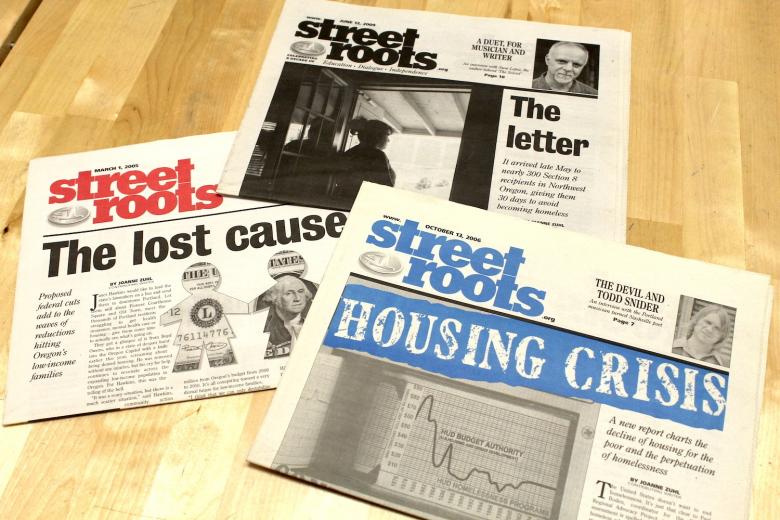How should Portland be addressing the homeless crisis?
December 12, 2022
Portland’s homeless crisis is impossible to miss. Hundreds of tents are set up all over the city, hundreds of people are searching trash cans, and thousands sleep on Portland streets every night. All Portlanders are asking themselves the same questions: why is the homeless population growing in Portland and how do we address it in a way that is both effective and compassionate?
Some claim that many residents from neighboring states, such as Idaho and Washington, are flocking to Portland after becoming homeless. “[In Portland] there are cupboards, little wooden cupboards nailed to street posts where you can pick up some free food or a toothbrush,” says Angela Hart, senior correspondent at Kaiser Health News. “Some people would argue that it’s actually inviting more homeless people here.”
Where government services are limited or unavailable, many local non-profit organizations such as Street Roots, a non-profit newspaper distributed by those experiencing homelessness, have stepped in to try and help. Street Roots was originally a local Portland paper called “The Burnside Cadillac,” run by Sharon Pearson, which addressed various issues in the community, including the growing rate of homelessness in the city. In 1999, it changed to Street Roots, and former staff reporter Kaia Sand took over as executive director in December 2017.
Street Roots sells those in poverty the Street Roots newspapers for 25 cents each. These papers are full of articles covering social justice, Oregon politics, and other local issues. Street Roots vendors sell each paper to the public for $1, keeping all profits and tips. “What you’re earning is still so below a housing wage… I [want Street Roots] to be kind of like a jumping springboard to other jobs,” says Kaia Sand, executive director.
Street Roots also works to establish a supportive community in which everyone feels accepted. There are regular gatherings at the Street Roots office for morning coffee, poetry share-outs, and conversation. “[People] come to the office, you say ‘good morning’, people know your name, and all of that starts to create stability,” Sand says. “Things like that matter so much… just being seen.”
Street Roots newspaper vendor Robert Thuemler confirms Street Roots is supportive, calling them his “family,” according to his vendor profile, written by Kat Wasula, on the Street Roots website. “We always appreciate feeling human,” Thuemler says. He loves the relationships he has built with people at the office and the friendships he has with customers who buy papers from him. “I love volunteering– it makes me a better person. I may have a rough life, but I know deep down in my heart that I am helping someone else so they can have a better life.”
However, an income from Street Roots is far below housing wage and therefore will not solve Portland’s growing homeless problem on its own. And, according to KGW News, the Portland housing market is a major factor in the rising population of homeless people. Portland’s average rent is $1,700 per month, as of July 2022, which is about $400 higher than the national average, of about $1,300 per month.
One way the City of Portland has been attempting to control the homeless population is by doing camp sweeps. However, when camp residents are unable to move their belongings, the sweep collects them and puts them in storage. This can be traumatic, as many people have invaluable items in their tents. “You’d be surprised how many people have things like family ashes,” Sand says. Street Roots vendor, Frank Johnson, had all his belongings confiscated by a sweep and is currently recovering from that experience. “Home is where the heart is, home is where my head is, but the city has done everything in their power to make me feel like this is not my home,” Johnson says in his vendor profile, written by Jessica Hamilton. He says Street Roots has helped him rebuild by providing an accepting community for him to be a part of.
The Portland homeless crisis has become more visible and more concerning in recent years. Everyone in the community is having difficulty finding a solution. Many are trying to support those in poverty by showing compassion. Street Roots is one of the programs working tirelessly to help, but there’s always more that can be done.




William katsirubas • Dec 12, 2022 at 8:25 pm
First of all you should look to rehabilitate these people help them get a job they can’t expect people taxpayers to support them forever they need to understand that get a job most of them are drug attic’s and alcoholics they need to get a job bottom line